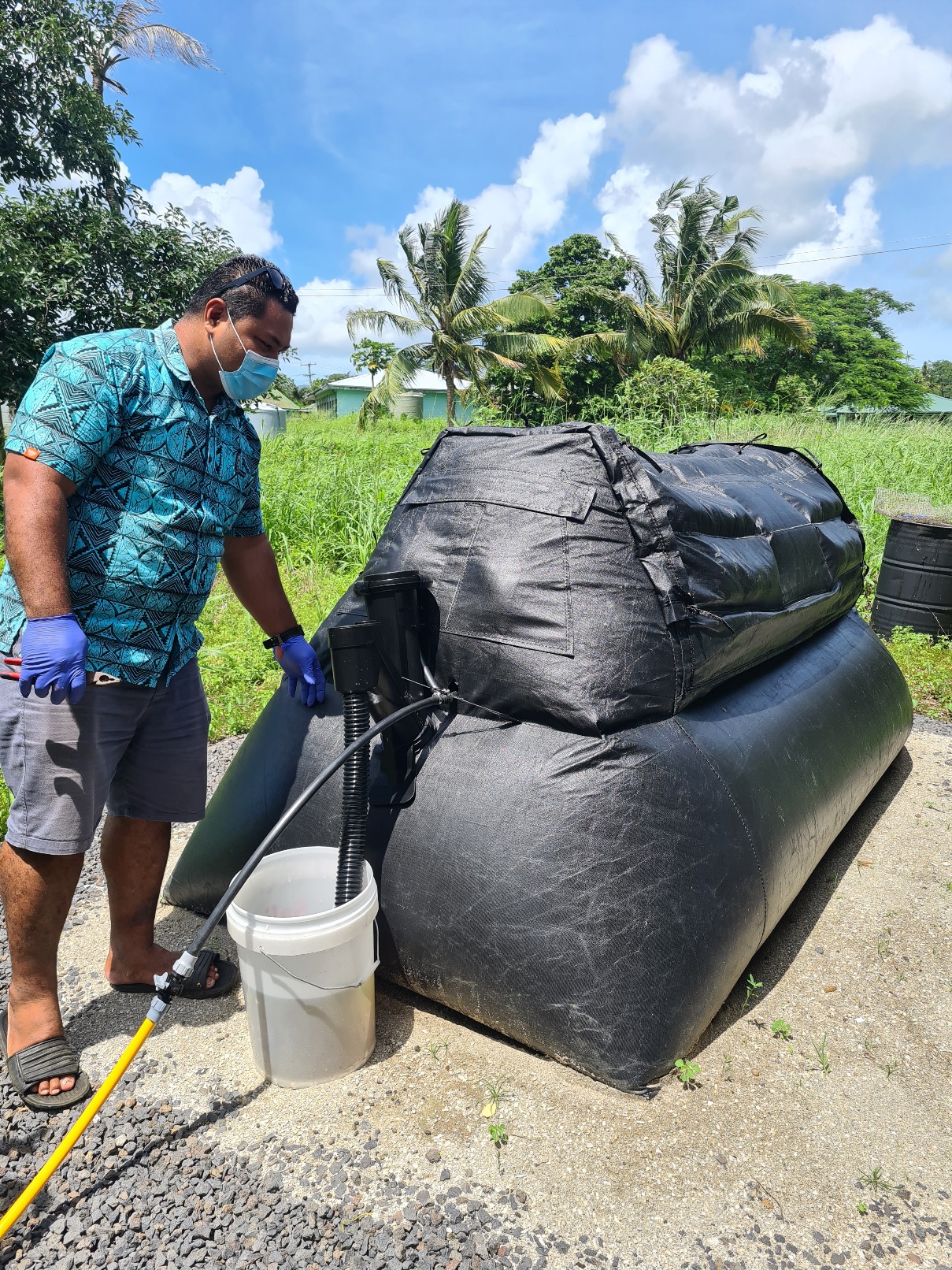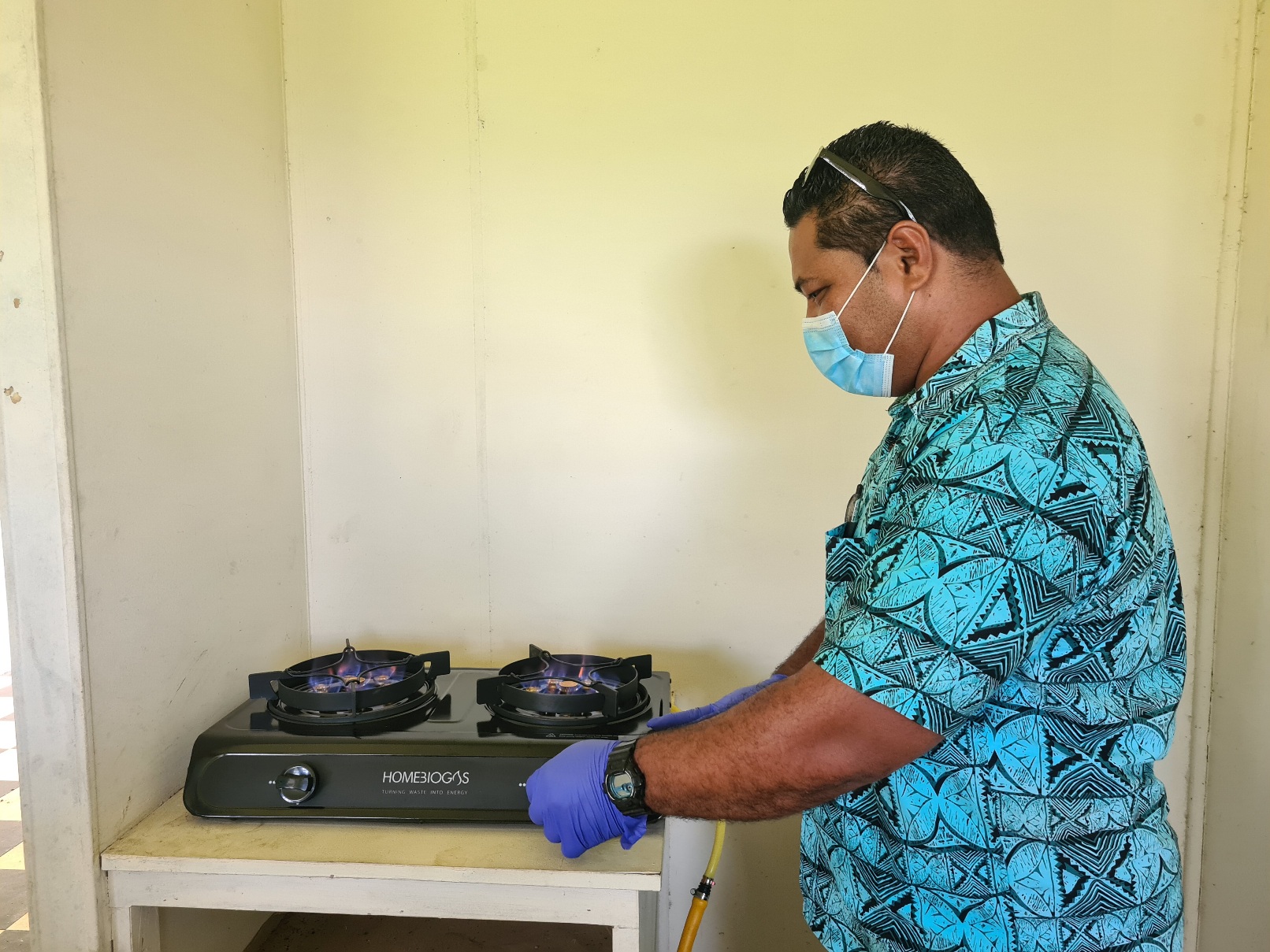Samoa is the first country in the region to install a HomeBiogas 4.0 System at Nu’u based on innovative Israeli technology as it ups the ante in the country’s transition to clean energy.
The installation of the plant was made possible through collaboration between the Crops Division of the Ministry of Agriculture and Fisheries (M.A.F.) and the Scientific Research Organisation of Samoa (S.R.O.S.).
The HomeBiogas System decomposes food scrap, waste and animal manure and produces renewable energy in the form of bio-gas for daily cooking as well as bio-slurry fertiliser for healthy soil and plants.
By re-using bio-organic matter the system can produce up to three hours of cooking gas per household after it is fed with 12 kgs of kitchen waste or animal manure.
In addition, the installation reduces carbon emissions and strengthens climate resilience by reducing waste and dependence on firewood.
According to the M.A.F. Chief Executive Officer, Tilafono David Hunter the donation of two HomeBiogas units to Samoa is an initiative under the Israel Pacific Food Security Alliance. The alliance comes as a result of a summit in February 2020 between Pacific island leaders and the government of Israel.
Tilafono said at the summit in 2020, Pacific island leaders and Israel agreed to strengthen further cooperation to support efforts in addressing sustainable development challenges by drawing on the unique experience and innovative skills of Israel in the fields of public health, food security, water management, renewable energy, climate change adaption and mitigation among others.
“The final outcome of summit meeting is the Israel Pacific Food Security Alliance (I.P.F.S.A.),” he said in a statement issued by his Ministry. “In implementing this initiative, the Israeli Foreign Ministry donated over 90 HomeBiogas cooking devices to be distributed among the Pacific Island states including Samoa.
“We would like to acknowledge and sincerely thank the continuous support from the State of Israel through Israel Ministry as well as the HOMEBIOGAS representative in Fiji, Pacific Grow for the financial support in funding this project not only for Samoa but other Pacific island colleagues.”
The Ministry’s ACEO for Crops Division, Tanu Toomata said the first HomeBiogas unit had been installed at Nu’u at a site where the Ministry plans to renovate an existing building to accommodate a seeds production laboratory.
“Two complete sets of HomeBiogas units were received and one has been utilised for the implementation of the system by the teams for the first trial in monitoring and testing the progress of the system before it is promoted to farmers,” said Mr Toomata.
“With the second unit to be installed at S.R.O.S. to scientifically assess its effectiveness and efficiency for its intended purposes, as part of M.A.F.SROS collaboration on technological research.”
He also added that the HomeBiogas unit acts as a smart waste management tool which will complement the Ministry’s work in processing vegetable and fruit seeds.
“All the left-over food waste will feed the seeds production laboratory while benefiting from the sustainable clean energy and organic fertiliser produced,” Mr Toomata said. “The successful installation by one of our staff with support from Pacific Grow in Fiji is a highlight of another great achievement for Samoa being the first country in the Pacific to install this unique technology.”
The HomeBiogas was installed two weeks ago by the Crops Advisory Officer, Ioelu Iosefa who is now a certified trainer after successfully completing the 10-week regional training program for trainers facilitated by the Fiji-based company, Pacific Grow.
Speaking of his experience in biogas training, he said he learned that the system from Israel is easy to install.
“I’m very excited to transfer this new agriculture technology know-how to our farmers in the near future, “said Mr Iosefa. “This new system serves three main purposes and that is to provide gas for cooking and even liquid fertiliser which is much needed by our local farmers.
“I think it can help to uplift the standard of living especially in these times that we are facing the difficulties of the COVID-19 disease and also the impacts of the climate change.”




Leave A Comment